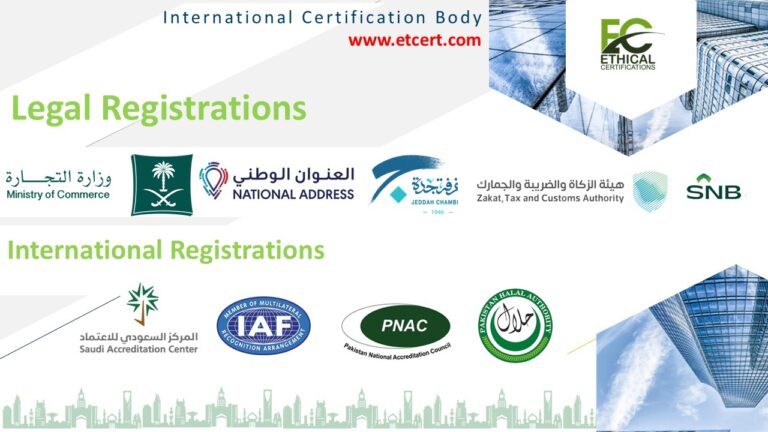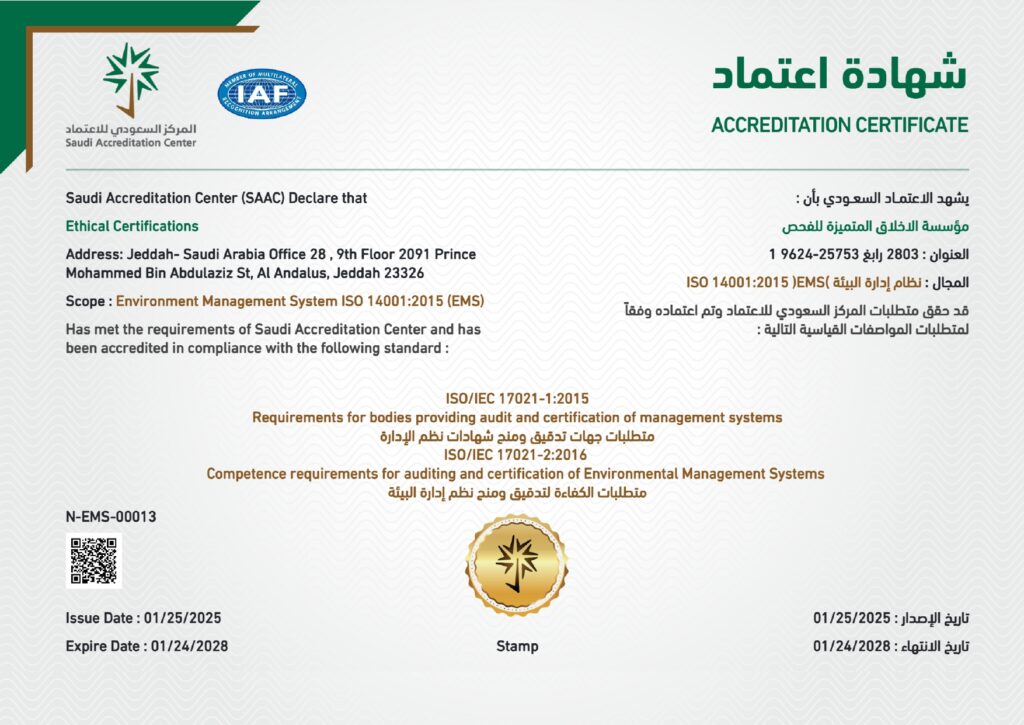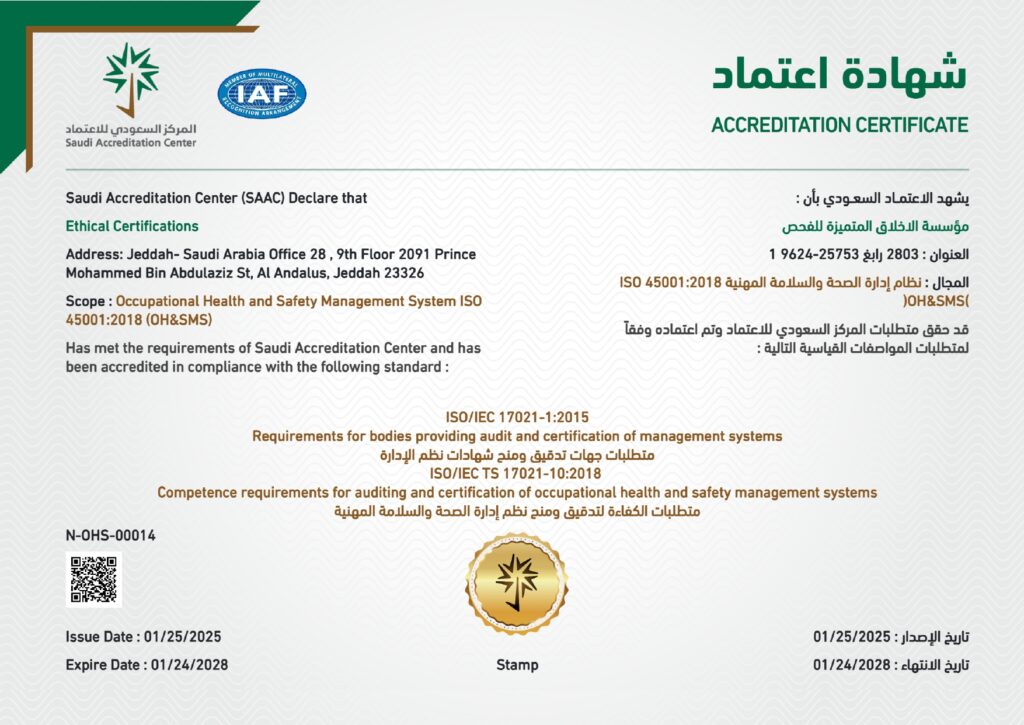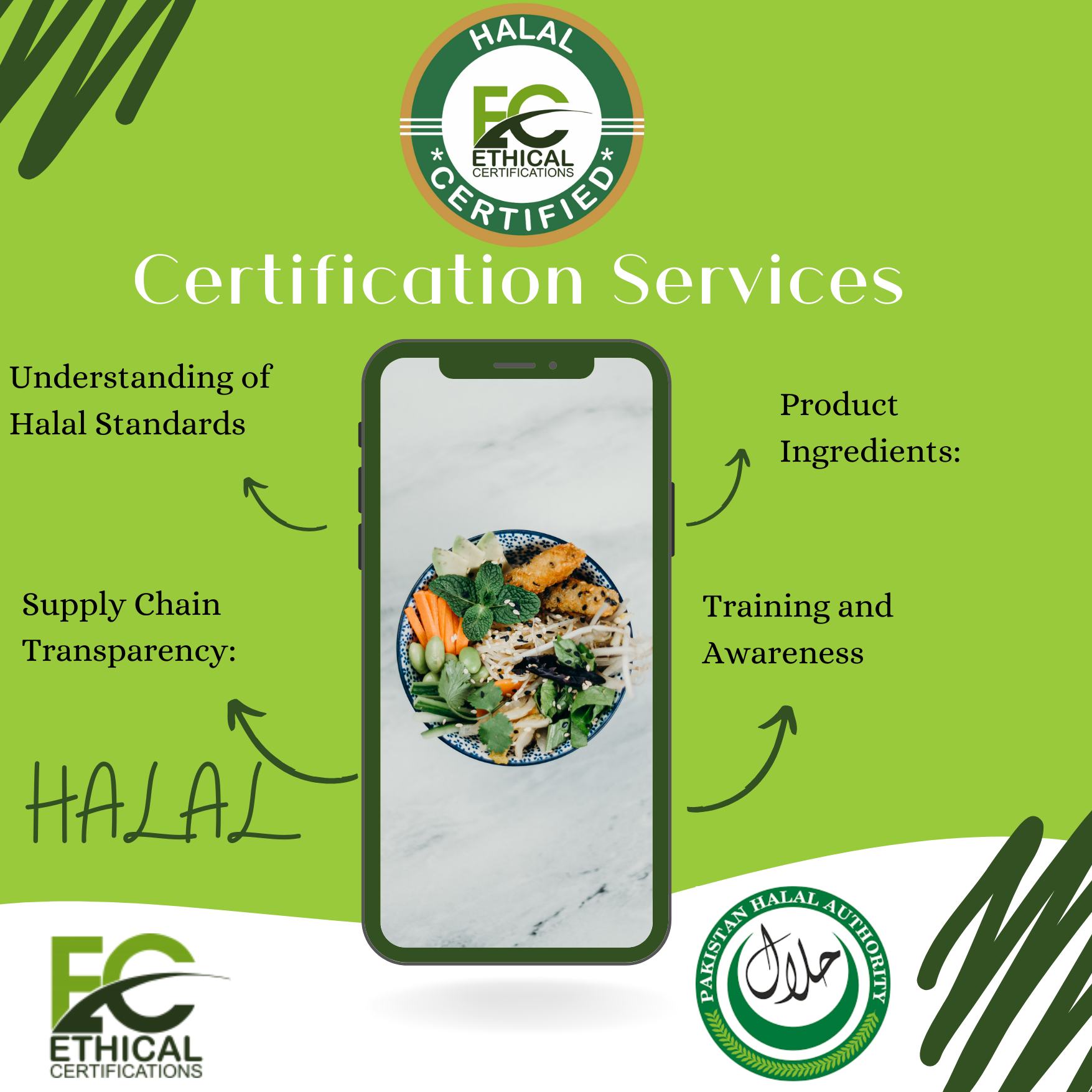Accreditations
WORLD WIDE ACCEPTABILITY
Accreditations
At Ethical Certifications, we are proud to hold accreditation from both the Saudi Accreditation Center (SAC) and the Pakistan National Accreditation Council (PNAC) against ISO/IEC 17021-1:2015 and ISO 22003-1:2022. These esteemed recognitions affirm our commitment to upholding internationally recognized standards in certification and inspection services.
The SAC accreditation ensures that our certifications align with the stringent quality and safety standards required for businesses operating in the Kingdom of Saudi Arabia. Similarly, PNAC accreditation guarantees that our certifications are globally recognized, opening doors to both national and international markets. Together, these accreditations empower us to deliver trusted, world-class certification services that businesses can rely on, regardless of where they operate.

ISO 9001:2015
ISO 14001:2015
ISO 45001:2015
ISO 22000:2018
PS 3733:2022 HALAL



HALAL Certification
Ethical Certification Pvt limited is registered by PHA (Pakistan HALAL Authority) on PS 4992:2022(R) Conformity assessment – Requirement for Bodies providing halal certification
Ethical Certifications adheres to the PS 3733:2022 standard, offering certification services across various sectors of the food industry.
The Pakistan Halal Authority (PHA), established under the Ministry of Science and Technology (MoST) by Act No. VIII of 2016 of the Islamic Republic of Pakistan, is tasked with promoting trade and commerce in Halal products and processes. PHA ensures that the Halal status of products, processes, and services is consistently maintained and monitored, both in the local market and for imported/exported goods.
As global trade trends evolve, the Halal market has emerged as a key commercial force, catering to the needs and preferences of an estimated 1.6 billion Muslims worldwide. This market represents a dynamic and growing sector in global commerce. PHA ensures compliance with international, regional, and national standards, as well as relevant laws, rules, and policies governing Halal products, processes, and services.
Does Accreditation Matter?
Importance of SAC, and PNAC Accreditation and IAF Recognition
Accreditations from the Saudi Accreditation Center (SAC), and the Pakistan National Accreditation Council (PNAC) are crucial for businesses aiming to enhance their credibility, improve operational efficiency, and access global markets. Here’s why these accreditations are important:
1. Global Recognition and Acceptance
- IAF: Being accredited by the IAF recognized Accreditation Board means that your certification is accepted worldwide. This opens up international business opportunities, gives you the international traceability and enhances your company’s reputation on a global scale.
- SAC: Accreditation from SAC ensures that your products and services meet Saudi Arabia’s stringent quality and safety standards, making it essential for businesses operating within or entering the Saudi market.
- PNAC: PNAC accreditation guarantees that your certifications are recognized in Pakistan and internationally, facilitating easier access to various markets.
2. Enhanced Credibility and Trust
- Accredited Certifications from reputable bodies like SAC, and PNAC provides assurance to clients, stakeholders, and consumers about the quality and reliability of your products or services.
- It demonstrates your commitment to maintaining high standards and regulatory compliance, fostering trust and confidence in your brand.
3. Access to New Markets
- Many industries, especially those involved in government contracts and international trade, require certification from accredited bodies. Having Accredited Certifications can be a prerequisite for entering new markets and bidding on tenders.
- This Accredited Certifications can differentiate your business from competitors and give you an edge in securing contracts, particularly in regions with strict regulatory frameworks.
4. Improved Operational Efficiency
- Achieving Accredited Certifications often involves a thorough evaluation of your processes, leading to identification and elimination of inefficiencies.
- The standards set by ISO encourage organizations to adopt best practices, enhancing their overall operational performance and customer satisfaction.
5. Commitment to Quality and Continuous Improvement
- These Accredited Certifications instill a culture of quality management and continuous improvement within organizations.
- They provide a structured framework for organizations to develop, implement, and maintain effective quality management systems, resulting in better products and services.
6. Risk Management
- Accredited Certifications involves rigorous audits and assessments that help identify potential risks in operations, processes, and products.
- By adhering to the standards businesses can proactively manage risks, ensuring compliance with legal and regulatory requirements.
7. Market Differentiation
- Holding an Accredited Certification sets your organization apart in a competitive marketplace. It signals to customers that you prioritize quality and compliance, which can be a deciding factor for many consumers and clients.
- This differentiation can lead to increased customer loyalty and a stronger market presence.
8. Facilitation of Trade
- These Accredited Certifications help facilitate trade between countries by ensuring that products and services meet internationally recognized standards.
- Businesses with Accredited Certifications can more easily navigate import/export regulations, simplifying the process of doing business across borders.

